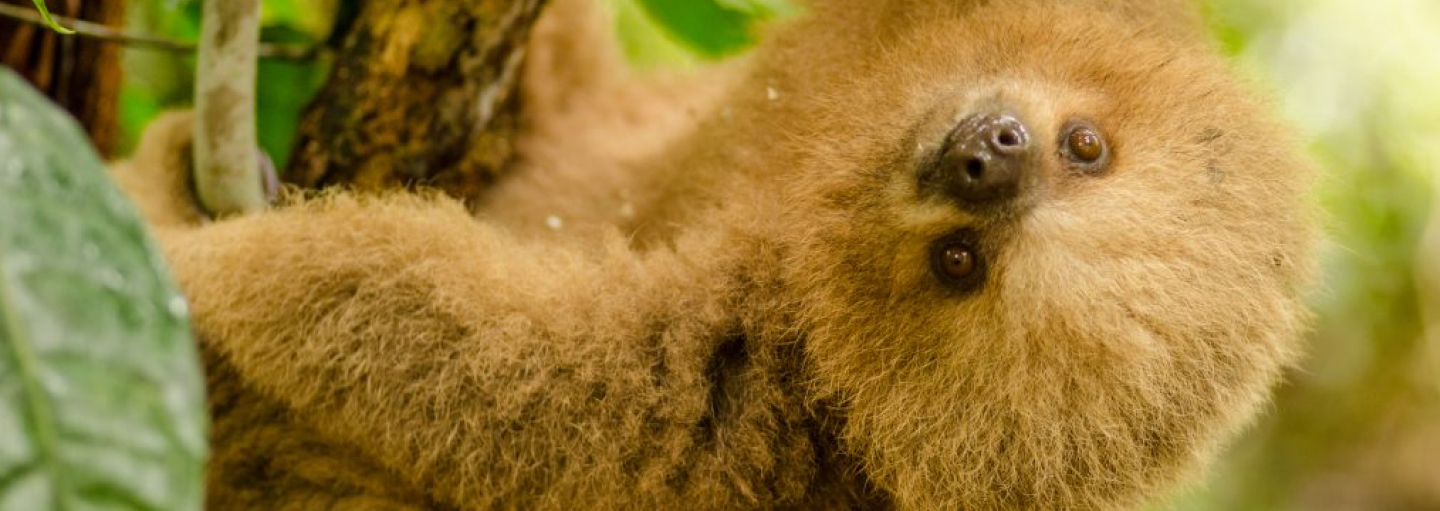A Roadmap to Hope: Ecuador Approves REDD+ Implementation Plan to Reduce Deforestation and Forest Degradation in Pastaza
06/11/2021
Strategic Area:
Climate - People - Wild Places -
Content Type: Blog
Country:
Ecuador -
Nature and Culture International supports Pastaza in becoming the first province in Ecuador with an Implementation Plan for REDD+ Measures and Actions. This groundbreaking plan will serve as a template for others to replicate throughout the country and beyond.
On May 22, 2021, the Provincial Government of Pastaza officially received the Letter of Approval for the REDD+¹ Measures and Actions Implementation Plan of the Province. The letter was issued by the Ministry of Environment and Water of Ecuador (MAAE) as the National REDD+ Authority and will contribute towards national efforts to reduce deforestation and forest degradation through conservation, sustainable forest management, and the optimization of other land uses to reduce pressure on forests. Pastaza is the first province in Ecuador to obtain an Implementation Plan approved by MAAE.
The Implementation Plan (Plan) is a planning and implementation instrument designed for the execution of the REDD+ Action Plan “Forests for Good Living” 2016-2025 in Ecuador. It offers actions for conservation and sustainable production while incorporating the worldview, needs, and input of the indigenous nationalities of Pastaza. The Plan ultimately aims to decrease deforestation in Pastaza as the population adopts sustainable production practices that conserve biodiversity and ecosystem services.
This groundbreaking achievement is the result of successful collaboration between the Provincial Government of Pastaza, several municipal governments, seven indigenous nationalities of Pastaza, MAAE, the United Nations Development Programme (UNDP), and Nature and Culture International. The Plan marks the first time a provincial government and indigenous communities signed agreements to work together to implement actions and measures to reduce deforestation and forest degradation.
“We know that we are taking the right steps together and dreaming big. Our joint vision is the conservation and maintenance of the Amazon and its native peoples,” says Felipe Serrano, Executive Director of Nature and Culture in Ecuador.
Thanks to donors like you, the Plan serves as a roadmap to hope: outlining actions to protect nature and empower cultures in Pastaza and serving as a planning template for other provinces, for example Morona Santiago and Zamora Chinchipe, to replicate throughout Ecuador.

Nature and Culture has supported conservation and management efforts in Pastaza for the past ten years. In 2017, we helped establish the 6.3-million-acre Pastaza Ecological Area of Sustainable Development in the center of the Ecuadorian Amazon region. Shortly after, we supported the province in joining the Governors’ Climate and Forest Task Force (GCF), a subnational collaboration between 38 states, provinces, and regions from 11 countries to protect forests, reduce emissions, and promote sustainable development.
Through GCF membership, Pastaza received funds for the REDD+ Measures and Actions Implementation Plan. Noted for its development with indigenous communities, the Plan is one of five projects selected from around the world to receive funding for implementation!
During the ceremony of the delivery of the Letter of Approval of the Plan, UNDP Geneva Program Officer, Alexis Arthur, highlighted the collaboration between the Prefecture of Pastaza and the indigenous people as a real and unique partnership in the world.

The province of Pastaza spans paramo grasslands, montane forests, and Amazon rainforest in northern Ecuador. It is the largest and best-conserved province in the country with forests occupying 94% of the province. Pastaza’s forests are excellent buffers against the climate crisis, capturing the largest amount of carbon in Ecuador. However, road construction in the area provides access for illegal logging, animal trafficking, agricultural expansion, and other development. Nature and Culture estimates that from 2016 to 2018, over 3,000 acres of forest in Pastaza were deforested each year, primarily due to agricultural expansion.
The approval marks the starting point for the implementation of proposed protective actions, including conservation and restoration of degraded areas, sustainable forest management, sustainable productive activities, and coordination between governments. The Plan will be implemented in a coordinated manner between the Municipal and Parochial Governments and the seven indigenous nationalities of Pastaza.
Jaime Guevara, Provincial Prefect of Pastaza, explains that it took ten years to reach this milestone. Efforts leading up to the development of the Plan included the construction and formalization of provincial environmental policies, the creation of Pastaza Ecological Area of Sustainable Development, the organization of the Consortium involving three levels of government, and the participation of seven indigenous nationalities.

Nature and Culture will work in partnership with the Provincial Government of Pastaza and indigenous communities to implement the planned actions for conservation and sustainable production in the Ecuadorian Amazon. With help from donors like you, we will replicate efforts to reduce emissions from deforestation and forest degradation in other provinces in Ecuador.
¹REDD+ is a United Nations-backed framework that aims to curb climate change by reducing emissions from deforestation and forest degradation. It creates a financial value for the carbon stored in forests by offering incentives for participating countries to reduce emissions from forested lands and invest in low-carbon paths to sustainable management and development.
Learn more about Pastaza Ecological Area of Sustainable Development here.


